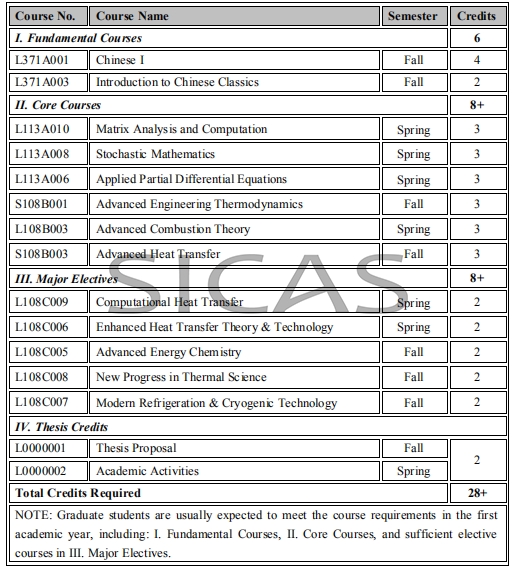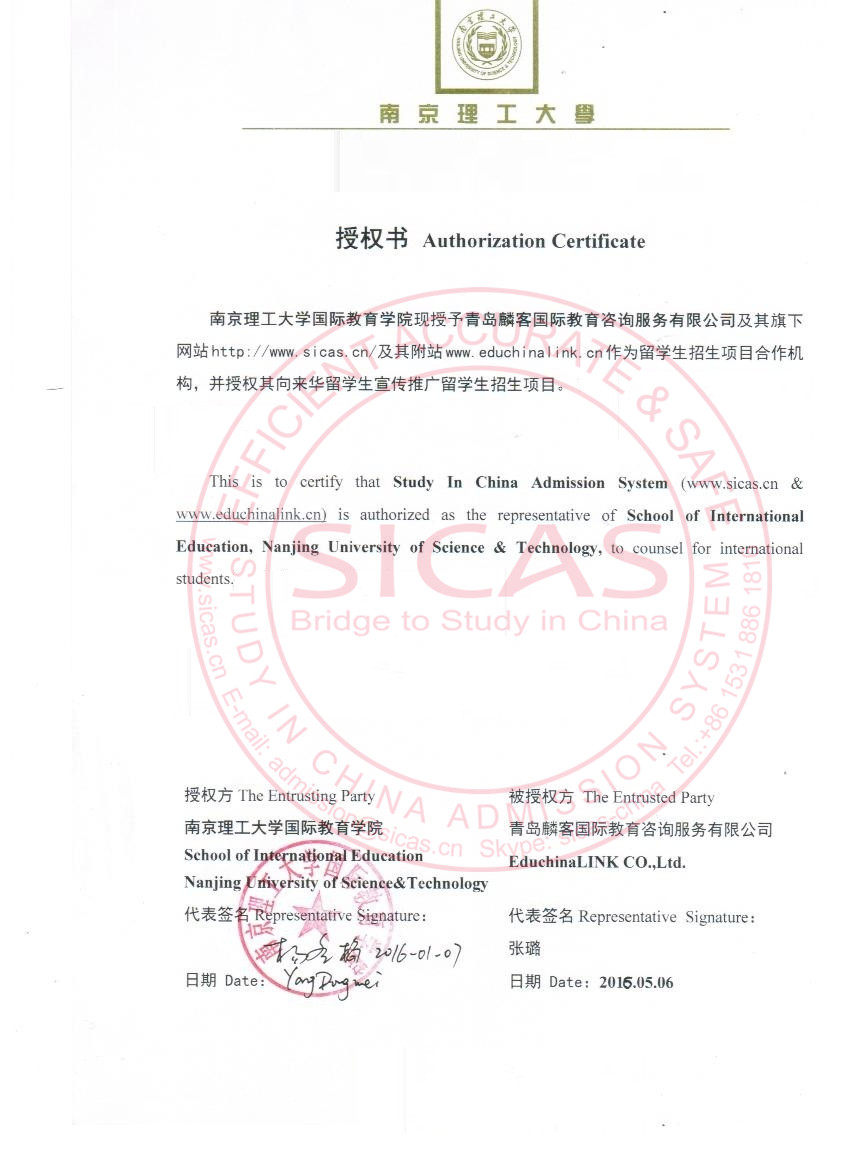|
|
Power Engineering and Engineering Thermophysics
|

|
|
|
Teaching Medium:
|
English
|
|
Degree Awarded:
|
Master's Degree
|
|
Entry Requirements:
|
Bachelor's Degree
|
|
Duration:
|
2.5 Years
|
|
Starting Date:
|
Sep.2025
|
|
Application Deadline:
|
Aug 15, 2025
|
Tuition Fee:
|
CNY 36,000 per year
|
Application Fee:
|
150 USD (Non-Refundable)
|
|
HSK:
|
Level 0
|
|
Schools:
|
Other
|
1. Introduction
Power Engineering and Engineering Thermophysics of Nanjing University of Science and Technology (NUST) is a key discipline of Jiangsu province, and also a key construction brand discipline of NUST. Nanjing efficient heat transfer engineering technology center is affiliated to this discipline. “Thermal Energy and Power Engineering Central Lab” is a basic experimental teaching demonstration center of Jiangsu province.The discipline consists of five secondary discipline master programs in Engineering Thermophysics, Thermal Engineering, Refrigeration & Cryogenic Engineering, Power Machinery & Engineering, and New Energy Science & Engineering.
2. Research Directions
(1) Engineering Thermophysics: Heat and mass transfer theory and
enhancement technology; Advanced thermophysics test technology; Electronic
equipment thermal control theory and technology; Multiphase reactive flow and
combustion technology; Thermal equipment design theory and its dynamic
characteristics; Energy saving technology in industrial process.
(2) Thermal Engineering: Combustion theory and pollutant control technology
in the process of the electric energy production and heat energy utilization; Biofuel
combustion chemistry and diagnostics technology; Clean efficient development and
utilization of fossil fuels; Thermal process automatic control; Flame image processing
and combustion control optimization; Thermal equipment system status monitoring
and fault diagnosis system.
(3) Refrigeration and Cryogenic Engineering: Refrigeration, air conditioning
and cryogenic engineering technology; Energy utilization and environmental control
in refrigeration air conditioner; Air conditioner system energy saving and its
automation; and Dynamic characteristics of refrigeration air conditioner.
(4) Power Machinery and Engineering: Internal combustion engine supercharge,
structure and performance optimization, and reliability analysis; Power system and
electronic control; Internal combustion engine combustion and emission control; Leaf
blade machine pneumatic thermodynamics.
(4) New Energy Science and Engineering: Solar energy efficient photovoltaic
conversion technology (solar cells, solar thermal photovoltaic, etc.); Solar energy full
spectrum photoelectric-photothermal coupling utilization technology; Biomass
conversion and energy utilization technology; Fan reliability and testing technology;
Development and application of distributed energy and new energy for vehicles.
3. Duration of studies
Full time master students are expected to complete their studies and earn their degrees in 2.5 to 5 years, and they will be disqualified from the program after 5 years.
4. Credits requirements
Students are required to complete at least 28 degree credits from courses in Section 5 with a minimum of 26 coursework credits and 2 obligatory courses.
5. Curriculum(Click to enlarge)

6. Thesis Topic and Proposal
A master student is supposed to choose his/her research direction under an advisor’s guidance. The student should actively study, research and survey in the chosen research direction. The student is expected to choose a research topic for the postgraduate thesis and confirm the significance of the topic in a thesis proposal. The
thesis proposal should be submitted and defended at the beginning of the second year of study.
Detailed regulations and requirements on master's thesis can be found in the "NJUST Regulations about the Topic Selection, Research Proposal and Composition of Postgraduate Theses and Dissertations".
7. Publication
Before graduation, each master student should have at least one academic paper published. Detailed requirements are documented in "NUST regulations on a postgraduate’s publications of their research work".
8. Degree Thesis Requirement
MA Degree thesis is one of the most important parts for graduate education, which provides students with training on academic research or specific technology application, enhances students’ abilities to innovate and to apply the knowledge to their research, and encourages them to discover, analyze and solve problems in their fields.
Detailed regulations and requirements on master's thesis are documented in the "NJUST Regulations about the Topic Selection, Research Proposal and Composition of Postgraduate Theses and Dissertations", and "NUST Style Sheet for Theses and Dissertations". For a joint effort with others, or a follow-up of previous work, the student should clearly specify his/her contribution to the thesis.
1. Non-Chinese citizens with a valid passport
2. Have attained bachelor degree
3. Be in good health condition and under the age of 35
4. Observe the law and regulations of People's Republic of China and all regulations of the university
1. Photocopy of valid passport
With name, passport number & expiration date, and photo included.
2.Passport-sized photo
A recent passport-sized photo of the applicant.
3. Bachelor's degree diploma
Graduation certificate should be in Chinese or English. If not, it should be translated into Chinese or English and be notarized.
4. Transcript of undergraduate school
Transcript should be in Chinese or English. If not, it should be translated into Chinese or English and be notarized.
5. Certificate of English proficiency test
It is better to upload your IELTS or TOEFL results when you are applying for a course taught in English, especially for those non-native English speakers, even though it is not a compulsory condition in some of the universities.
6. Two letters of recommendation
From professor or associate professor or equivalents.
|













